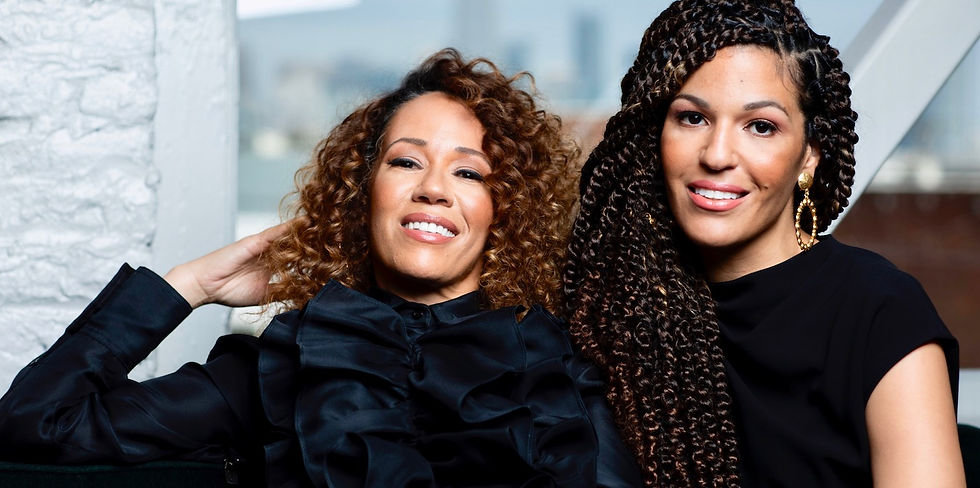Climate Change Threatens Wine Industry
- blackcoralinc2021

- Feb 22, 2023
- 4 min read
Black owned wineries embrace sustainability practices to save it!
Climate change poses a significant threat to the wine industry. It has increased the frequency of severe weather, while fewer winter frosts have encouraged the spread of pests. But a rise in temperature is also causing a major shift across the whole industry.

Differences in taste and a rise in sugar and alcohol content are all linked to higher temperatures and sunnier, drier weather, as well as smaller grapes.In grapes, like in most fruit, there is a decrease in acidity and an increase in the amount of sugar as they ripen. At warmer temperatures, ripening is supercharged, leading to sweet, raisin-like flavor in grapes.
Wildfires and warmer temperatures can transform the flavor of wine, whose quality and very identity depends on the delicate chemistry of grapes and the conditions they're grown in.To be more precise, a warming of +2°C would lead to the destruction of 51 to 56% of the world's wine-growing regions, due to a climate that would be too arid and a lack of water. At +4°C, 85% of the wine-growing land could be wiped out. Climate change, labor shortage, geopolitical tensions, tariff fluctuations, and balancing personal life are the top 2023 challenges as per leading winemakers
Sustainable wines are produced in vineyards that practise water and energy conservation, preserve ecosystems and local wildlife. A vineyard that produces sustainable wine actively encourages and maintains healthy soils because they know that by doing so they will be able to continue growing grapes for years to come.Many millennials are strapped with debt, so while ordering out at a restaurant, they tend to favor a tasty craft beer that costs less rather than a mediocre glass of wine. Again, the proof is in the data; over the last decade, restaurant wine sales have declined for the average winery, in the USA consumers aged 65 years and older comprised the largest share of wine consumers. In 2023 the billion dollar wine industry is worried, because the people doing the majority of the sipping are baby boomers, not millennials. The annual state of the wine industry report outlined this concern, pointing out that if this trend continues sales of American wine could plummet by as much as 30% in the next decade.
With climate change comes the risk for intensifying long-term extremes. Things like longer droughts, more intense heat waves, and more erratic rain patterns in the winter. All of those things will make the future of farming less predictable, especially for those that grow wine grapes. Climate change is predicted to raise the average temperature as much as 5 to 7 degrees Fahrenheit this century. That warming combined with increased drought could scald grapes that are grown using traditional methods. So far it is the newer wine growers that are looking at sustainability as essential to a lasting and growing wine industry.
The following is an excerpt from a recent issue of Ebony Magazine. “There's a movement happening now with Black culture and wine. We should recognize that wine has always been a part of our culture going back to Africa," shares Dr. Monique Bell, Associate Professor of Marketing at California State University, Fresno of the . "If you have roots in the South, as I do, you may have heard your grandparents or great, great grandparents talking about making their own jug wine. So there really is this long connection between our culture and wine. "“The three major challenges emerging from the data are lack of financial capital, systemic racism, and confusing wine regulations. Since the majority of the Black wine entrepreneurs were self-funded, access to capital to grow their businesses was identified as a key challenge.” The lack of inclusivity in the wine industry has resulted in our winemakers not being highlighted, celebrated, and exposed to the market until only recently. But one thing that stands out about black wineries is their openness to embrace sustainability practices, many of which come from indigenous knowledge. Because of this wine shops are opening all over the U.S. that proudly specialize in minority-owned, and especially Black-owned, wineries, distillers and breweries. At the same time,
Black-owned wineries are sprouting up everywhere, from Davidson, N.C., to Wichita, Kansas. This is creating a demand-and-supply dynamic that has not previously existed. The SIP CONSCIOUSLY DIRECTORY one of the supporters of this movement is a growing assemblage of Black and Brown wine businesses as a partnership with Uncorked & Cultured and Dr. Monique Bell, professor, wine + culture researcher, and founder of The Wyne Belle. Our research collaboration seeks to illuminate BIPOC contributions to the wine industry and foster community within it. With an intention to Sip Consciously, this comprehensive resource highlights diverse entrepreneurs in the 3-Tier wine distribution chain. The prime example of what success can be attained is reflected in the wines of the McBride Sisters Robin and Andrea. Their winery has grown into what is not only the largest Black-owned wine company in the United States, but one of the most inclusive, accessible, socially aware and sustainable.
These values show up not only in the wines they make but in all facets of their company. Their signature McBride Sisters Collection wines are direct reflections of the terroirs of their youth, with flavors designed for all palates. The fun and fab SHE CAN canned wine collection and it’s related SHE CAN Professional Development Fund, are inspired by the endless pursuit of all women who are making their dreams a reality and breaking barriers daily. And the Black Girl Magic collection, Robin and Andrea’s personal ode to their culture and story, is inspired by the magic and resilience of Black women, to be enjoyed by all.






Comments